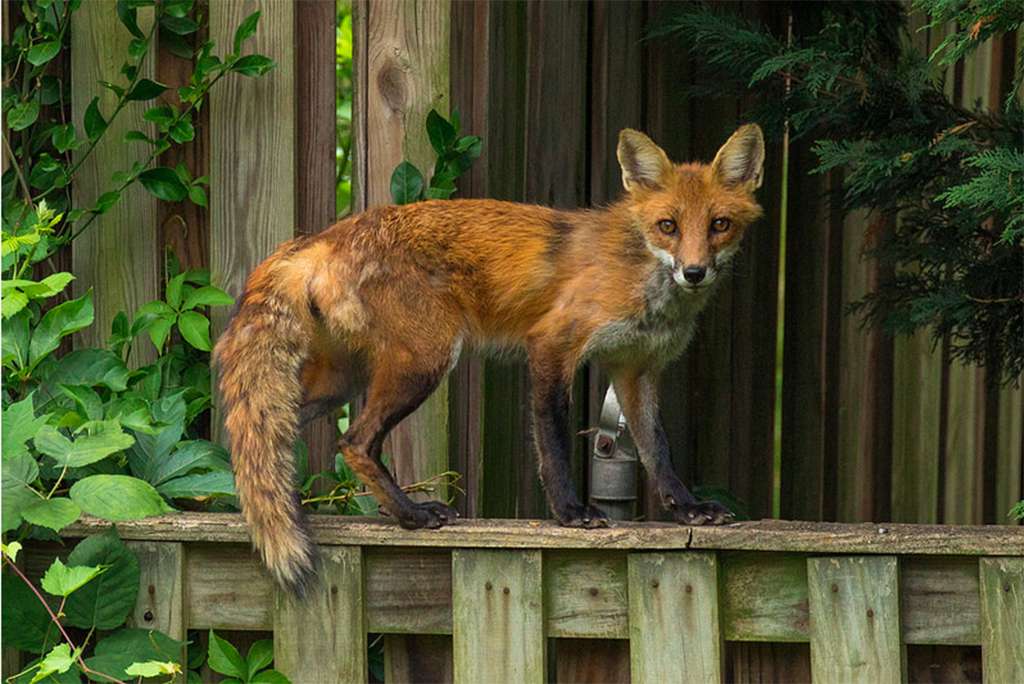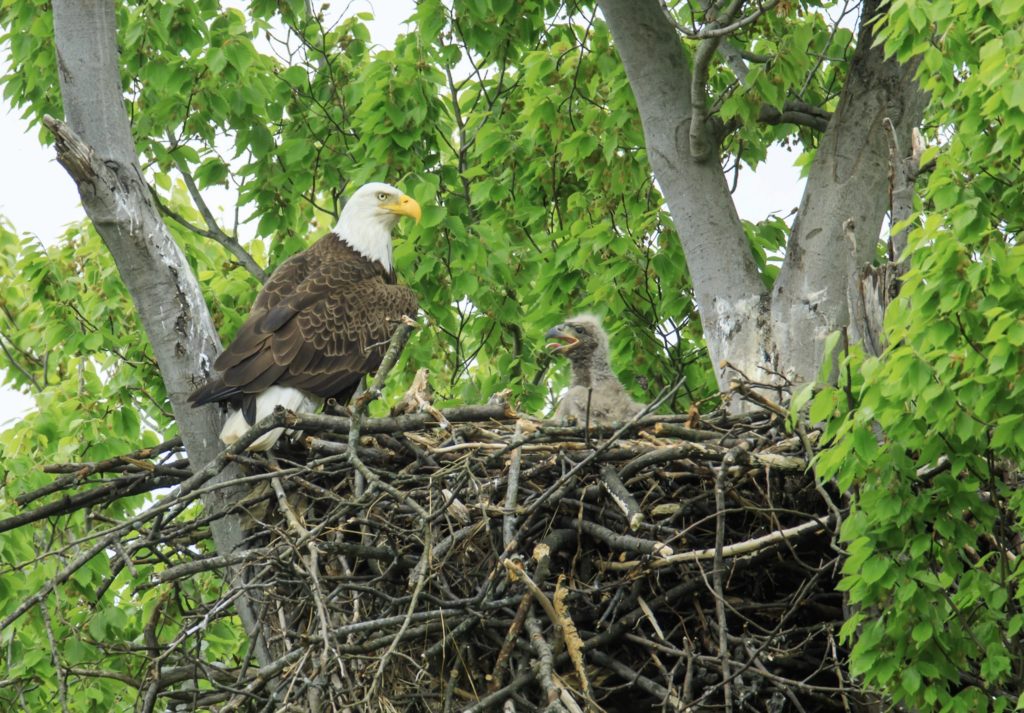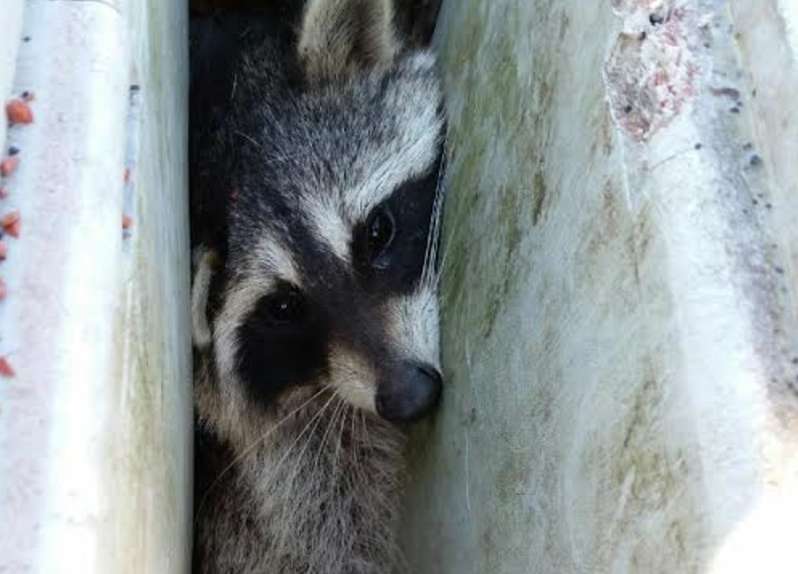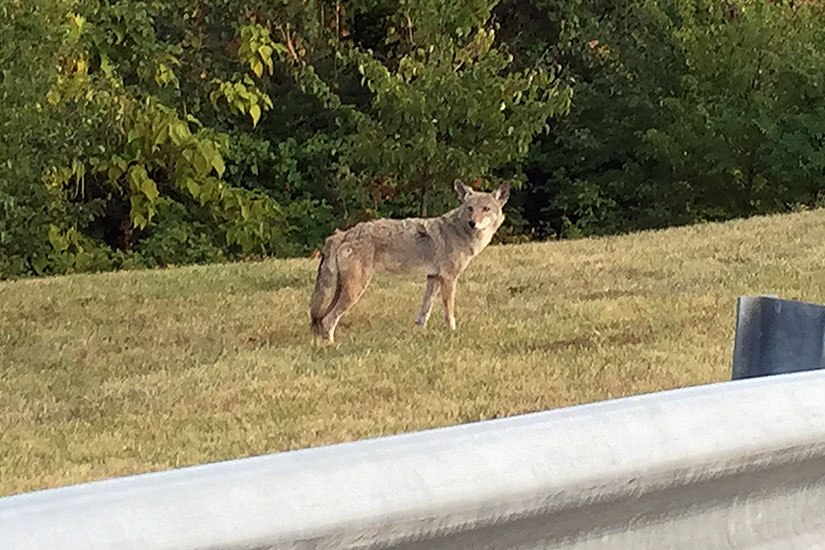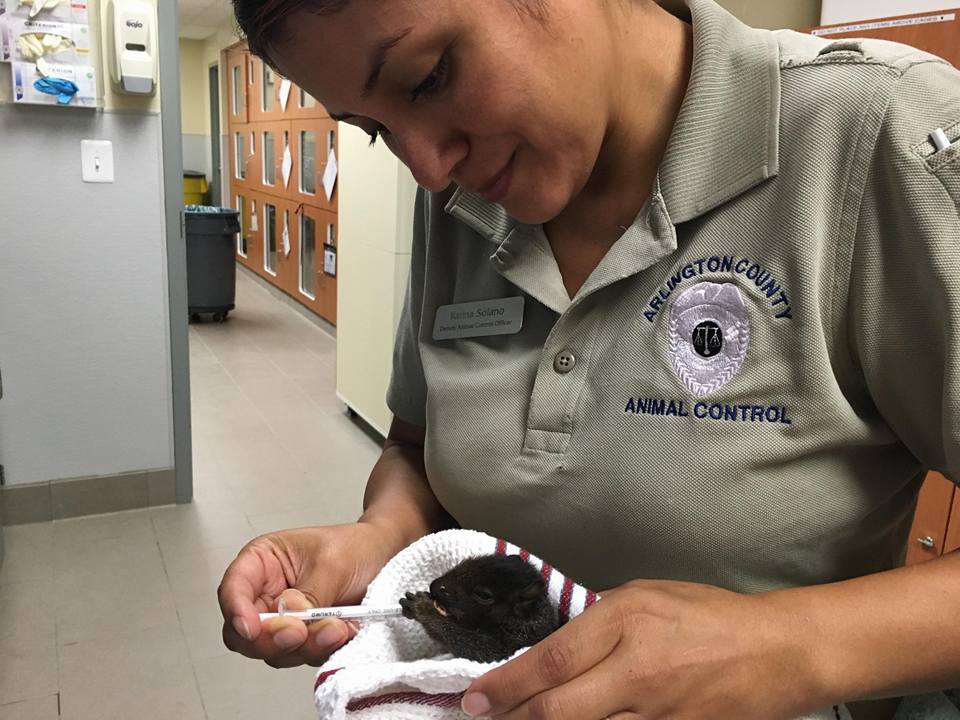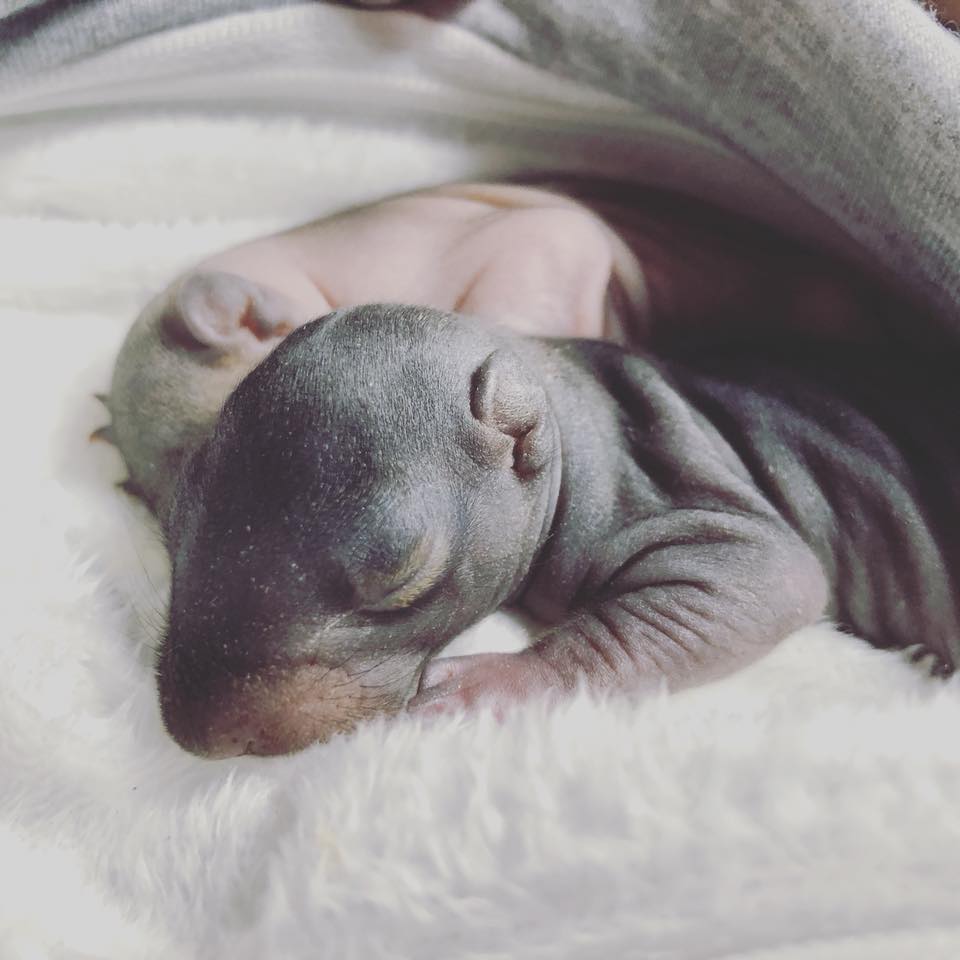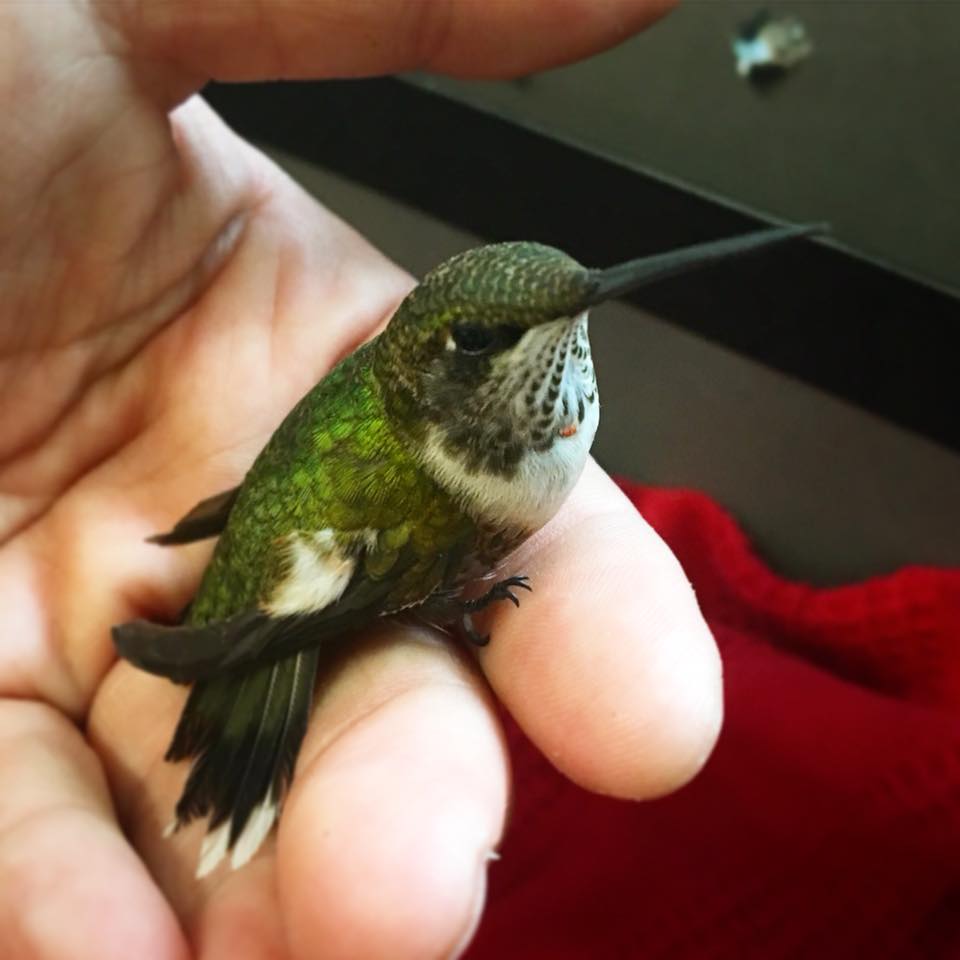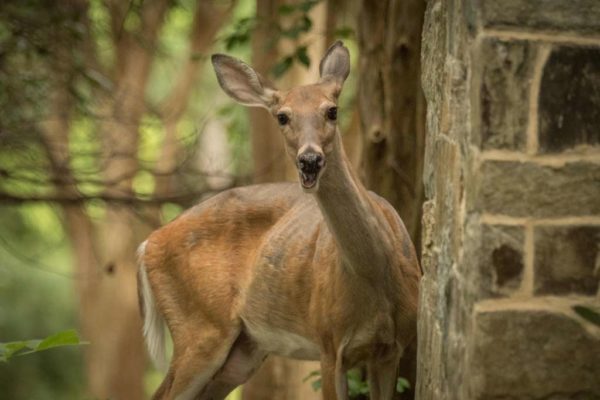With many animals preparing to rear their young, the season of wildlife encounters is upon us, says the Animal Welfare League of Arlington.
Animal Control Chief Jennifer Toussaint told ARLnow that service calls to her department typically increase this time of year. She shared some tips on making sure the encounters are safe for both humans and animals.
The Arlington County Board banned residents from owning “wild and exotic” animals as pets in 2017, but residents have documented many wild encounters over the years: including feral cat colonies, a coyote on the move, a construction-site turkey, booming bunny populations, and trash truck raccoon as well as school drain raccoon.
Overall, Toussaint said animal control officers receive about 3,500 calls for service annually, and about half those calls involve wild animals. “That tells me that that is a huge need the community has for my department,” she said.
One way she’s trying to meet that need is with public education events, like the one she held on Tuesday. It’s an opportunity to talk about animal-proofing one’s homes, and about dispelling old myths about normal animal behavior.
“I think most of the calls we get are genuine concern. They find a bird on the ground and it looks like a baby. They don’t know that most songbirds fledge from the nest and spend a few days on the ground building up the shoulder strength to fly,” she said, joking, “Cartoons lied to us as children!”
And the rule about not touching baby animals lest their scent changes and their parents abandon them? Also a myth, she says.
As for homeowners who prefer enjoying wildlife from a distance?
“A lot of it is pretty simple,” Toussaint says, “one of the main things is ensuring your home is impenetrable.”
Her tips include capping chimneys, and inspecting attics, eaves, roof siding, and trim regularly for any signs of wildlife.
Ensuring trash barrels stay closed with bungee cords, and clearing debris from yards also helps discourage animals from making homes or meals at people’s homes.
One thing she doesn’t recommend?
“We’re all kind of on top of each other here in Arlington, so I don’t promote people putting chemicals out,” said Toussaint. There are a number of safe, alternative remedies people can use for the problems they most often call about, she said.
For more questions, Toussaint recommends Arlingtonians check out the Humane Society’s species-specific website, or call animal control any time at 703-931-9241. Some animal-specific advice is below, after the jump.
Baby bunnies
Rabbits enjoy digging shallow dens into mulch or gardens which they line with fur and give birth in, Toussaint said. Then they cover up the hole so well most people can’t find them.
“There can be bunnies hidden in your yard and you don’t even know about it,” the chief said.
The problem? Usually dogs sniff them out, and then homeowners have to decide what to do with the finger-sized fuzzballs.
“Bunnies don’t do well in rehab,” said Toussaint. “They’re very sensitive. Ideally, if they’re not injured they need to stay in place.”
She said not to worry if you have a nest in your backyard that appears to be abandoned — “mom’s a genius and specifically comes at specific times to not be spotted because she has no way to defend them.”
Deer
Toussaint says deer don’t like approaching too close to people, so she recommends people plant their gardens close to their houses to discourage the leaf-munchers from taking a bite out of your favorite azalea.
Foxes
Toussaint said foxes “are very respectful” of boundaries with humans and help control the county’s snake population. But occasionally she said animal control gets called to someone’s house where they’ve denned under a back shed or patio.
The solution? Five dollar Sponge Bob Square Pants or Dora the Explorer mylar balloons, securely tied down outside their den site.
“It’s a random object they’ve never seen before,” she said of the foxes which fear the cartoon-shaped balloons. “It shows up right outside of the entrance of their home and then oh my god the wind blows and it shifts so it looks like it’s moving.”
Foxes co-parent their young, and usually have multiple den sites within their territory so usually relocate quickly and safety, she said.
Bats
One animal the chief notes residents aren’t likely to see anymore are bats. Across North America, millions have been killed in recent years by a fungal disease researchers are scrambling to cure.
“Eight years ago as an officer I would periodically bring in little brown bats,” Toussaint said. “I haven’t seen one in about two years.”
She asks residents to call animal control if they encounter any of the furry fliers causing problems with humans. “Every bat that we can rehab and successfully release increases the likelihood that we will see them for a few more years to come,” she said.
In the meantime, she says residents may notice how without bats the county’s mosquito population may rise — bad news considering county officials say rising water levels are also likely to increase the number insects.
Photo (top) courtesy of the Animal Welfare League of Arlington, photo (bottom) via Flickr pool user Wolfkann


